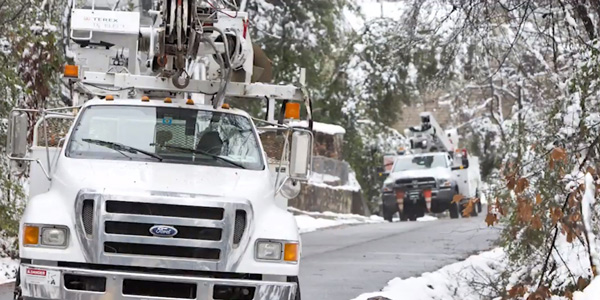By Amanda Durish Cook
Louisiana regulators are questioning why MISO called a maximum generation event and issued instructions for conservative operations in its South region during an extreme cold snap last week.
Eric Skrmetta, chair of the Louisiana Public Service Commission, told The Advocate that he’ll seek an investigation into last week’s actions in MISO South, saying there was “no reason in the state of Louisiana for electricity to become short.” Commissioner Craig Greene said the agency would examine the electricity supply during the cold snap and look to identify ideas for better utility response in future frigid weather.
Reached by phone, a member of the PSC’s staff told RTO Insider that they were in the process of reviewing the event and declined to comment further.
MISO spokesperson Mark Brown said the RTO was able to maintain grid reliability even as extreme temperatures gripped the South and multiple generation outages posed challenges.
The RTO declared conservative operations and a cold weather alert for MISO South — which spans Arkansas, Louisiana, portions of Mississippi and part of eastern Texas — beginning Jan. 15, when most of Louisiana was under a winter weather advisory. It cautioned operators in the natural gas-heavy region to prepare for fuel restrictions.
The region set a new winter demand record of 32.1 GW on Jan. 17 as temperatures dipped to about 30 degrees Fahrenheit below normal and winter storm warnings were issued in Louisiana. The region’s all-time summer peak is 32.6 GW.
That same day, Entergy Louisiana reported that about 32,000 homes and businesses had lost power because of the winter storm, and it later thanked customers for responding to the conservation plea.
The South region resumed normal operations late on Jan. 18, after the Louisiana PSC had issued a public appeal on behalf of MISO and Entergy Louisiana asking customers to conserve energy by lowering thermostats, sealing households against outside air as much as possible and postponing laundry and bathing during the unusually cold temperatures.
Louisiana tops all other U.S. states in energy consumption per capita, in part because of the number of oil refineries and manufacturing plants on the Gulf Coast, according to a report last year by the U.S. Energy Information Administration.
MISO South Executive Director of External Affairs Kent Fonvielle said the RTO shared the Louisiana PSC’s concerns about reliability.
“In extreme conditions such as this week’s bitter cold in the South, MISO delivers the value of a large footprint with a diverse energy mix and greater redundancies to address various challenges to operations,” Fonvielle said in an email to RTO Insider. “As the generation resources available to serve these extreme load conditions become strained, MISO has a set of procedures to ensure adequate supply and to keep the transmission grid stable.”
He added that, in such situations, MISO South calls on support from MISO Midwest and makes purchases from other RTOs. It’s also common for MISO to request that members activate their load control programs and issue public appeals for conservation, he said.
“It is rare for MISO to ask for conservation efforts, but ultimately those conservation efforts help protect the larger grid,” Fonvielle said. “Our role is to coordinate the best use of the power resources available across the MISO footprint so that it is reliable and cost-effective.”
Fonvielle said MISO appreciated the cooperation it received from South members, stakeholders and consumers to conserve energy during the peak conditions. He added that the RTO would perform its own review of the week’s events and have staff discussions on possible areas of improvement.





